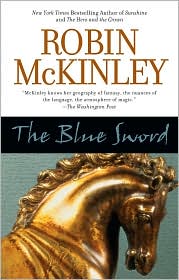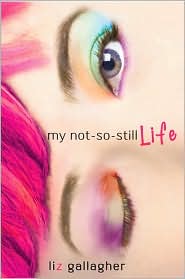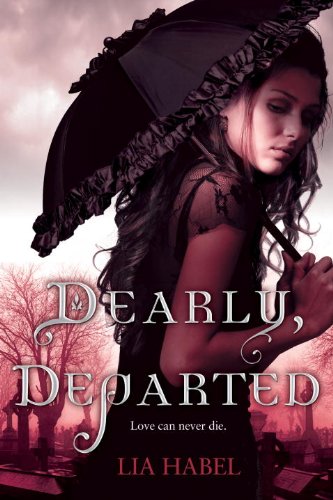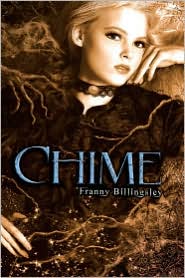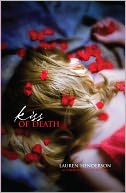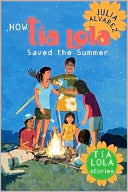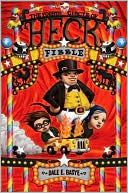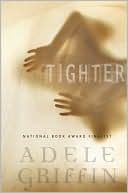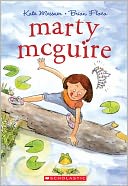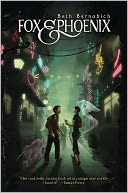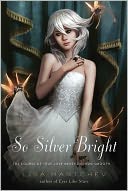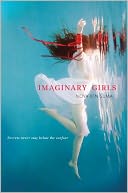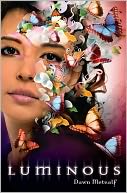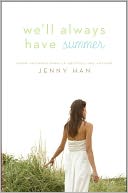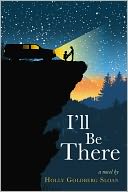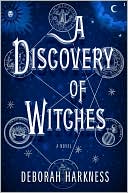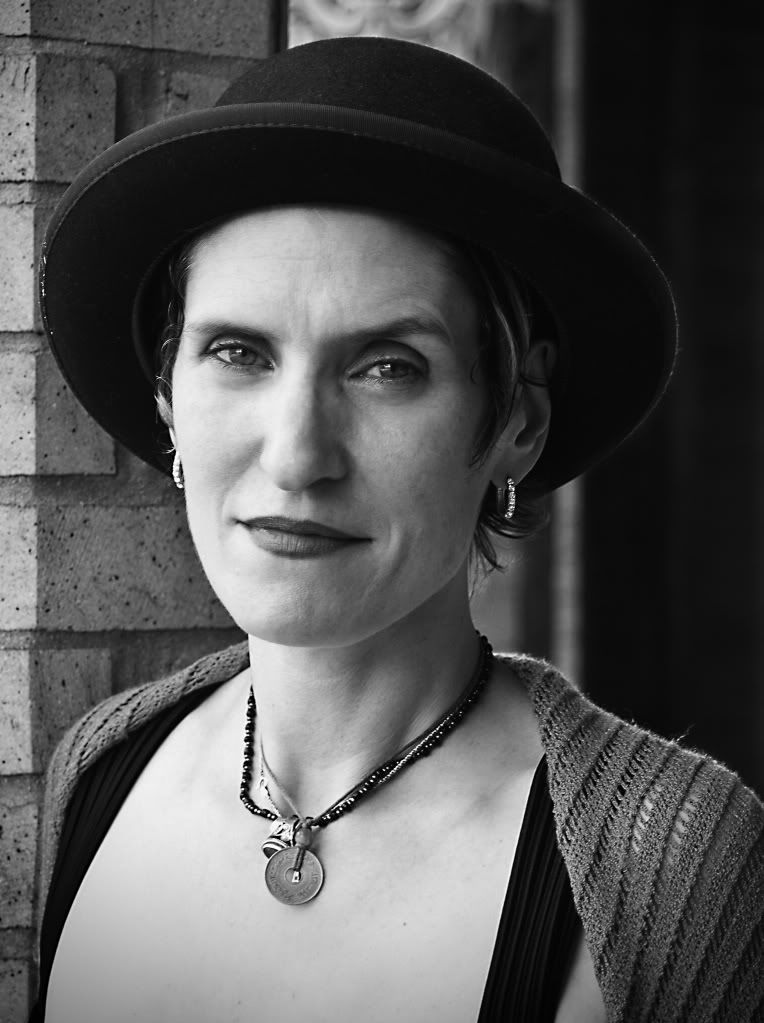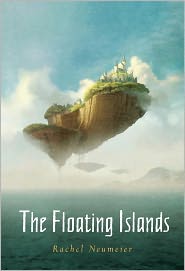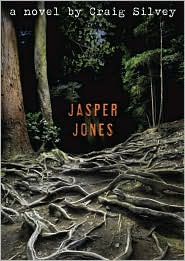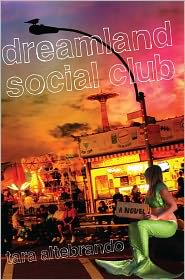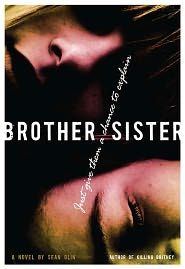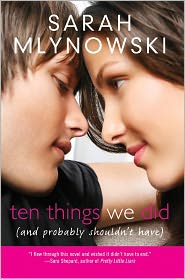▼
Tuesday, May 31, 2011
Lots and Lots of Giveaway Winners!
The winner of a signed copy of Bumped by Megan McCafferty is:
#7 Meredith!
The first winner of a May giveaway prize pack is:
#97 Emy Shin!
The second winner of a May giveaway prize pack is:
#155 Anita Yancey!
The winner of A Discover of Witches by Deborah Harkness and a set of buttons is:
#7 Em!
The winner of the complete Summer trilogy by Jenny Han is:
#52 Jessica!
The winner of Plague by Michael Grant is:
#43 Ammy Belle!
Congratulations to all the winners! You have been emailed. Don't worry: loads more giveaways coming soon on account of the whole "I have to get rid of books before I move" thing!
Saturday, May 28, 2011
Review: The Blue Sword by Robin McKinley
Tags: YA, fantasy, political intrigue, magic
Summary
Outlander Harry Crewe, new to their newly colonized homestead in Damar, feels a connection to the deserts beyond her new home…a connection that she doesn’t understand until she meets—and is taken by—the Damarian king, Corlath. For Harry is part of a prophecy that tells of a female warrior’s destiny to save Damar from their enemies. In doing so, Harry becomes a part of a culture that’s strange and mysteriously familiar at the same time, and cannot even begin to comprehend the extent to which her legacy will be imprinted on Damarian history.
Review
Well, they don’t really write high fantasy as they used to, now do they? There has to be a reason that Robin McKinley’s THE BLUE SWORD, first published in the 1980s, is still being widely read and adored, and that is because it is arguably the absolute best in its genre, an unmatched blend of strong characters, political intrigue, and quite simply the best damn fantasy world ever imagined and written.
It’s a little strange for me to read THE BLUE SWORD for the first time, nearly ten years after I picked up The Hero and the Crown and read it to pieces for about four years straight, it having been my favorite book in middle school. THE BLUE SWORD was written before The Hero and the Crown. I can hardly wrap my mind around that! The depiction of the Damarian landscape is incredible: ranging from endless red deserts to the hidden valleys and villages within the mountains. Robin McKinley’s language is not quite lyrical, per se, but there is a certain hypnotic rhythm that her descriptions possess. That, combined with the scope of the worldbuilding—the politics, myths, fashions, traditions, everyday duties—is entrancing. McKinley inspires awe in readers.
Harry, of course, serves for many as the blueprint of the admirable fantasy heroine. True, at times it feels like the mysterious magic of Damar is carrying her along, instead of her leading it. But her magnanimity, her determination to succeed even as she does not completely understand what’s happening to her, is inarguably admirable. Corlath’s appeal, I think, comes less from his specific characteristics, and more from his inexplicable status as the archetypal complement to Harry’s heroine role. However little or much we perceive of Harry and Corlath’s personalities, beliefs, or desires, however, they are a pair for whom we feel absolute sympathy.
I have little more to say because I feel like this is one of those instances where the more I try to examine what made this book move me so, the less impressed I will be by it. So I’ll just say that the scope of what it accomplishes is unparalleled, and if you read it at the right stage of life—say, on the brink of adolescence, just when you’re searching for a role model—then THE BLUE SWORD will undoubtedly become your bible of sorts.
Cover discussion: McKinley's books have so many different covers each. I like the design of this edition. It's uniform and hints at epic majesty without feeling too heavy or too light.
Ace Trade / Dec. 4, 2007 / Paperback (reprint) / 320pp. / $15.00
Personal copy.
Summary
Outlander Harry Crewe, new to their newly colonized homestead in Damar, feels a connection to the deserts beyond her new home…a connection that she doesn’t understand until she meets—and is taken by—the Damarian king, Corlath. For Harry is part of a prophecy that tells of a female warrior’s destiny to save Damar from their enemies. In doing so, Harry becomes a part of a culture that’s strange and mysteriously familiar at the same time, and cannot even begin to comprehend the extent to which her legacy will be imprinted on Damarian history.
Review
Well, they don’t really write high fantasy as they used to, now do they? There has to be a reason that Robin McKinley’s THE BLUE SWORD, first published in the 1980s, is still being widely read and adored, and that is because it is arguably the absolute best in its genre, an unmatched blend of strong characters, political intrigue, and quite simply the best damn fantasy world ever imagined and written.
It’s a little strange for me to read THE BLUE SWORD for the first time, nearly ten years after I picked up The Hero and the Crown and read it to pieces for about four years straight, it having been my favorite book in middle school. THE BLUE SWORD was written before The Hero and the Crown. I can hardly wrap my mind around that! The depiction of the Damarian landscape is incredible: ranging from endless red deserts to the hidden valleys and villages within the mountains. Robin McKinley’s language is not quite lyrical, per se, but there is a certain hypnotic rhythm that her descriptions possess. That, combined with the scope of the worldbuilding—the politics, myths, fashions, traditions, everyday duties—is entrancing. McKinley inspires awe in readers.
Harry, of course, serves for many as the blueprint of the admirable fantasy heroine. True, at times it feels like the mysterious magic of Damar is carrying her along, instead of her leading it. But her magnanimity, her determination to succeed even as she does not completely understand what’s happening to her, is inarguably admirable. Corlath’s appeal, I think, comes less from his specific characteristics, and more from his inexplicable status as the archetypal complement to Harry’s heroine role. However little or much we perceive of Harry and Corlath’s personalities, beliefs, or desires, however, they are a pair for whom we feel absolute sympathy.
I have little more to say because I feel like this is one of those instances where the more I try to examine what made this book move me so, the less impressed I will be by it. So I’ll just say that the scope of what it accomplishes is unparalleled, and if you read it at the right stage of life—say, on the brink of adolescence, just when you’re searching for a role model—then THE BLUE SWORD will undoubtedly become your bible of sorts.
Cover discussion: McKinley's books have so many different covers each. I like the design of this edition. It's uniform and hints at epic majesty without feeling too heavy or too light.
Ace Trade / Dec. 4, 2007 / Paperback (reprint) / 320pp. / $15.00
Personal copy.
Friday, May 27, 2011
Review: My Not-So-Still Life by Liz Gallagher
Tags: YA, contemporary, art, Seattle
Summary
Artistically talented and expressive Vanessa can’t wait to grow up, can’t wait until she’s old enough to leave her town and really live. Her current canvas is her body and her town, but she wants to get out there and have a purpose with her art. Vanessa’s desire to be older than her years causes a rift between her and her two best friends, Nick and Holly, and leads her to a job at her favorite art store along Oscar, Maye, and James, who seem to have the grown-up coolness Vanessa wants to be. What does it really mean to be grown up, though?
Review
I read Liz Gallagher’s first book, The Opposite of Invisible, and fell in love with her sparse but powerful and relatable prose. Therefore, I went into Liz’s second book, MY NOT-SO-STILL LIFE, with great anticipation. Perhaps a little too much—for while MY NOT-SO-STILL LIFE is a solid addition to the YA contemporary genre, it didn’t have the lasting emotional impact I had found in The Opposite of Invisible.
Given a few allowances, I think that Vanessa is a very relatable protagonist. She’s an artist, but her story doesn’t really revolve around art (which in fact was a little quibble I had with the book, the lack of depth the art aspect had). Instead, Vanessa struggles with the common adolescent desire to have more, to be more than the typical high school life. Vanessa is a warm-hearted girl: she has a great relationship with her family, which I appreciated, and she means well for her friends. While her problems with her friends arise from her trying to push what she feels is right onto their situations, I have no doubt that she is well-intentioned and loving. She wants the future to be now, and what teenager can really fault her for that?
My biggest disappointment in MY NOT-SO-STILL LIFE was that I guess I had wanted or expected…well, more. And by that I don’t mean page-wise: at less than 200 pages, MY NOT-SO-STILL LIFE still does a good job with character development. But for a girl who dreams of going out there and actually living, Vanessa’s troubles feel disappointingly small, easily resolved, even a little contrived. I had expected her to undergo a greater sort of revelation, but that was not what ended up happening.
MY NOT-SO-STILL LIFE is good for a quick read when you’re in between two heavier books. It didn’t resonate as well as The Opposite of Invisible did for me, but I’m still interested in what Liz Gallagher has for us next.
Similar Authors
Mariah Fredericks
Cover discussion: I hate this cover. It's beyond merely childish--it's tacky. Why is it that artistry or quirkiness in characters cannot be expressed on covers except through clownlike depictions?
Wendy Lamb Books / May 10, 2011 / Hardcover / 192pp. / $15.99
Copy borrowed from Doylestown Bookshop's Advance Reader Program.
Summary
Artistically talented and expressive Vanessa can’t wait to grow up, can’t wait until she’s old enough to leave her town and really live. Her current canvas is her body and her town, but she wants to get out there and have a purpose with her art. Vanessa’s desire to be older than her years causes a rift between her and her two best friends, Nick and Holly, and leads her to a job at her favorite art store along Oscar, Maye, and James, who seem to have the grown-up coolness Vanessa wants to be. What does it really mean to be grown up, though?
Review
I read Liz Gallagher’s first book, The Opposite of Invisible, and fell in love with her sparse but powerful and relatable prose. Therefore, I went into Liz’s second book, MY NOT-SO-STILL LIFE, with great anticipation. Perhaps a little too much—for while MY NOT-SO-STILL LIFE is a solid addition to the YA contemporary genre, it didn’t have the lasting emotional impact I had found in The Opposite of Invisible.
Given a few allowances, I think that Vanessa is a very relatable protagonist. She’s an artist, but her story doesn’t really revolve around art (which in fact was a little quibble I had with the book, the lack of depth the art aspect had). Instead, Vanessa struggles with the common adolescent desire to have more, to be more than the typical high school life. Vanessa is a warm-hearted girl: she has a great relationship with her family, which I appreciated, and she means well for her friends. While her problems with her friends arise from her trying to push what she feels is right onto their situations, I have no doubt that she is well-intentioned and loving. She wants the future to be now, and what teenager can really fault her for that?
My biggest disappointment in MY NOT-SO-STILL LIFE was that I guess I had wanted or expected…well, more. And by that I don’t mean page-wise: at less than 200 pages, MY NOT-SO-STILL LIFE still does a good job with character development. But for a girl who dreams of going out there and actually living, Vanessa’s troubles feel disappointingly small, easily resolved, even a little contrived. I had expected her to undergo a greater sort of revelation, but that was not what ended up happening.
MY NOT-SO-STILL LIFE is good for a quick read when you’re in between two heavier books. It didn’t resonate as well as The Opposite of Invisible did for me, but I’m still interested in what Liz Gallagher has for us next.
Similar Authors
Mariah Fredericks
Cover discussion: I hate this cover. It's beyond merely childish--it's tacky. Why is it that artistry or quirkiness in characters cannot be expressed on covers except through clownlike depictions?
Wendy Lamb Books / May 10, 2011 / Hardcover / 192pp. / $15.99
Copy borrowed from Doylestown Bookshop's Advance Reader Program.
Saturday, May 21, 2011
Discussion: Beyond Classifications
I am not a YA reader.
I am a reader, who likes YA.
There is a difference, however slight. For instance, I might consider myself a writer who is Asian American, not an Asian American writer. In my opinion, labeling myself as an Asian American writer would pigeonhole me into a genre of expectations. It would be like me working with a certain set of parameters for a certain audience in mind. I'd rather my Asianness be just one part of the complex being that is me, and not an inflexible label.
This thought was inspired by the Diversity in YA event I attended last Saturday, during which the writers on the panel, all of whom are and write books about people of color or different sexual orientations, were asked if they felt like they had to represent their community in the publishing world. (I could be getting the wording of the question wrong, but that's the jist of it.) And one of the authors, I think it was Olugbemisola Rhuday-Perkovich, talked about how she thinks about all her writer identities, like she is a writer who is black, as well as a writer who likes cheese.
A writer who likes cheese? Bemi's answer struck me as being one of the wisest things I have heard lately. For what are we but a conglomeration of a million different things that make up who we are, and who's to tell us that one of those things has to define us at the exclusion of all others? I am a writer who is Asian American and a writer who loves chocolate. Does me being Asian American mean I can't write about my love of chocolate?
I am a reader who likes YA because, above all, I search for literary quality and emotional resonance in the books I read. I want to be awed when I read the book. It happens rarely enough, finding that one book that awes me, but when it does it is so, so worth the 200 other books I read before finding that one. And those 201 books that I read range across all genres and reading age groups. So I am a reader, first and foremost, and it just so happens that the majority of books I read, the genre with which I feel most comfortable, is YA.
I have a suspicion that most of my blog readers out there are also readers who like YA. This could be because YA itself is a genre of crossovers. Ever notice how readers of YA fiction are much more willing to venture into the other sections of a bookstore, whereas a lot of readers of adult fiction are much more reluctant to do so? This gives the publishing industry extraordinary migraines, and sometimes writers justifiably fear that their book being marketed as YA will limit its audience. But I think that, while a lot of us read YA as our primary genre, we are also not unwilling to try out an adult book, or even a children's book. And I love that about readers of our genre.
So play a game with me, if you will. A game of identities. Fill in the following sentence: "I am a reader/writer/etc who ____________, and a reader/writer/etc who ____________." The first blank is something about your identity that is "obvious" or "classifiable;" the second blank is something about your identity that is far less obvious and may even be surprising to others.
Here is mine:
It's your turn now. Will you play?
I am a reader, who likes YA.
 |
| degreedirectory.org |
This thought was inspired by the Diversity in YA event I attended last Saturday, during which the writers on the panel, all of whom are and write books about people of color or different sexual orientations, were asked if they felt like they had to represent their community in the publishing world. (I could be getting the wording of the question wrong, but that's the jist of it.) And one of the authors, I think it was Olugbemisola Rhuday-Perkovich, talked about how she thinks about all her writer identities, like she is a writer who is black, as well as a writer who likes cheese.
A writer who likes cheese? Bemi's answer struck me as being one of the wisest things I have heard lately. For what are we but a conglomeration of a million different things that make up who we are, and who's to tell us that one of those things has to define us at the exclusion of all others? I am a writer who is Asian American and a writer who loves chocolate. Does me being Asian American mean I can't write about my love of chocolate?
 |
| journalstar.com |
I have a suspicion that most of my blog readers out there are also readers who like YA. This could be because YA itself is a genre of crossovers. Ever notice how readers of YA fiction are much more willing to venture into the other sections of a bookstore, whereas a lot of readers of adult fiction are much more reluctant to do so? This gives the publishing industry extraordinary migraines, and sometimes writers justifiably fear that their book being marketed as YA will limit its audience. But I think that, while a lot of us read YA as our primary genre, we are also not unwilling to try out an adult book, or even a children's book. And I love that about readers of our genre.
So play a game with me, if you will. A game of identities. Fill in the following sentence: "I am a reader/writer/etc who ____________, and a reader/writer/etc who ____________." The first blank is something about your identity that is "obvious" or "classifiable;" the second blank is something about your identity that is far less obvious and may even be surprising to others.
Here is mine:
I am a writer who is Asian American, and a writer who is interested in astrophysics.And by "interested" I really mean more like "obsessed." Bet most of you didn't see that one coming, huh? But yes, if I were to have a second shot at college, I would've probably stuck to an astrophysics degree this time around. Me = nerd FTW!
It's your turn now. Will you play?
Friday, May 20, 2011
Review: Enclave by Ann Aguirre
Razorland, Book 1
Tags: YA, dystopian, New York City
Summary
In the future New York City, society has moved underground, and residents receive a name on their sixteenth birthday. After receiving her name, Deuce is marked as a Hunter. Her job is to patrol the extensive underground tunnels to protect her society of Breeders, Builders, brats, elders, and others from flesh-eating Freaks. Deuce and her Hunter partner, Fade, the only person in their enclave to be born aboveground, discover a rising threat to the enclave, but no one will listen to them. But other problems arise as Deuce and Fade are exiled from the enclave, and they must face the dangerous unknowns of life aboveground.
Review
This book reminded me of why I sometimes HATE when writers for adults attempt to write for younger audiences. People, how many times do I have to remind you that having a good premise and combining that with sloppy worldbuilding, a teenaged protagonist, and a love triangle does NOT automatically qualify a book as YA? I managed to finish ENCLAVE, but only because the whole time I kept on expecting it to get better, for it to eventually blow me away. Well, there was definitely no blowing away: my butt remained firmly in my chair, my forehead practically glued to my desk in frustration.
Good things first, I guess. I like Deuce. She belongs in the new, Katniss-esque camp of female protagonists: resourceful, emotionally reserved, tough on the outside, vulnerable and endearing on the inside.
Now for the litany of issues I had with this book, i.e. Why Poor Deuce Deserved a Better Story. Where do I begin? The writing was mediocre. I felt like no sooner was a character or detail introduced then he/she/it either died, got destroyed, or became Significant, rendering all of those introduced characters and details glaringly device-y. Changes in Deuce and Fade’s lives occurred with little regard for logistical backstory: when Deuce is in danger of death by Freak, a random group of dwarf-people who—surprise!—have been secretly living within the tunnels all along come out to save her. Deuce and Fade are cast to the surface for a tradition that, in essence, should make sense as a way that the elders enforced obedience, but, when it actually happens, feels so contrived.
And that’s the problem I continued to have throughout this book. Despite the promising premise, I feel like ENCLAVE only scratched at the surface of its world’s possibilities. For me, a story’s world has to feel like it can exist without an author’s interference: the book has to read like, say, contemporary YA reads to us, which is to say that all the complexities and possibilities of the world have to feel natural. ENCLAVE’s world did not feel natural to me. It felt like the author was writing in aspects of the world as the story went along, and I was left with too many logistical questions and an utter lack of investment. For example, I’m aware that I was supposed to see Deuce’s enclave as a stifling, cruel, and totalitarian governing system, but I never felt stifled on Deuce’s behalf. Everything in this book was begging me to consider it as dangerous, as suspenseful, as intense—which did not allow me to feel anything naturally, except perhaps boredom. It was just not credible.
Deuce was about the only character in this book that I felt like was even remotely well developed, and I’m beginning to suspect that that’s just a trick of the first-person narration. Fade I felt was trying so hard to fit the mysterious-hot-love-interest quota that he ended up being very uninteresting. And OH GOD CAN I JUST RANT HERE ABOUT THE TRANSPARENCY OF THE LOVE TRIANGLE? So Deuce and Fade get into an altercation with a gang. The gang leader, who displays sociopathic tendencies towards homicide, randomly has a change of heart and joins them on their journey to find utopia, or whatever else is a better word for what they’re looking for. He and Deuce hook up when she’s busy agonizing over Fade. Yawn. The obviousness of the romantic elements of ENCLAVE didn’t help dissuade my snarky notion that the author was trying to fulfill some checklist for How to Write Bestselling YA or something.
I also think ENCLAVE took a big (and ultimately unsuccessful) risk in incorporating “idea-dropping” into its narration. “Idea-dropping” is my just-made-up term for a concept similar to name-dropping. It involves describing common modern items in such a way as to make it clear to us what the characters are describing without actually naming it, since, obviously, the characters don’t know the name for it. The one other time I’ve seen idea-dropping used was in another YA dystopian that ultimately didn’t agree with me. I think it’s a literary technique that panders to readers and doesn’t add anything to the world or the characters. I don’t freaking care that they’re eating Spam. All I needed to know was that they were eating long expired canned food. Spam only has implications for us readers, not the characters. Thus, idea-dropping spoon-feeds the dystopian aspect of a story, but I personally find the spoon-feeding offensive to my readerly intellect. There are better ways to write a dystopian than to idea-drop.
And what is up with the Freaks? Are they supposed to be flesh-eating zombies, or a mutation gone terribly wrong, or something else? Why wasn’t there more of an explanation for their existence so that they would also be less device-y? And are you SERIOUS about the disembodied voice that “speaks” to Deuce (or comes to her in a dream, I couldn’t figure out which) and convinces her to make the right decision, etc etc? I didn’t realize that deus ex machinas were so easily accepted! And don’t even get me started on how Tegan is an expendable ninny who inspires no empathy and is like a girl trying desperately not to be TSTL (“too stupid to live”) but, due to shoddy writing, ends up fitting exactly that expendable role.
My problem with ENCLAVE wasn’t that it read like a setup for the rest of the series. Rather, I just cannot respect a story that skimps so heavily on plot, characterization, and worldbuilding. As far as the trilogy is concerned, this is the end of the road for me. I wish all brave travelers who wish to journey beyond this point the best of luck. I’m going to spend my time on more well written books.
Similar Authors
Lesley Hauge (Nomansland)
Cover discussion: It's alright. It reminds me of a manhole cover. Is it supposed to do that? I actually somewhat prefer the old cover even though it's not very representative of the book. It could be used for a book set in prehistoric times, maybe.
Feiwel & Friends / April 12, 2011 / Hardcover / 272pp. / $16.99
Sent by publisher for review.
Tags: YA, dystopian, New York City
Summary
In the future New York City, society has moved underground, and residents receive a name on their sixteenth birthday. After receiving her name, Deuce is marked as a Hunter. Her job is to patrol the extensive underground tunnels to protect her society of Breeders, Builders, brats, elders, and others from flesh-eating Freaks. Deuce and her Hunter partner, Fade, the only person in their enclave to be born aboveground, discover a rising threat to the enclave, but no one will listen to them. But other problems arise as Deuce and Fade are exiled from the enclave, and they must face the dangerous unknowns of life aboveground.
Review
This book reminded me of why I sometimes HATE when writers for adults attempt to write for younger audiences. People, how many times do I have to remind you that having a good premise and combining that with sloppy worldbuilding, a teenaged protagonist, and a love triangle does NOT automatically qualify a book as YA? I managed to finish ENCLAVE, but only because the whole time I kept on expecting it to get better, for it to eventually blow me away. Well, there was definitely no blowing away: my butt remained firmly in my chair, my forehead practically glued to my desk in frustration.
Good things first, I guess. I like Deuce. She belongs in the new, Katniss-esque camp of female protagonists: resourceful, emotionally reserved, tough on the outside, vulnerable and endearing on the inside.
Now for the litany of issues I had with this book, i.e. Why Poor Deuce Deserved a Better Story. Where do I begin? The writing was mediocre. I felt like no sooner was a character or detail introduced then he/she/it either died, got destroyed, or became Significant, rendering all of those introduced characters and details glaringly device-y. Changes in Deuce and Fade’s lives occurred with little regard for logistical backstory: when Deuce is in danger of death by Freak, a random group of dwarf-people who—surprise!—have been secretly living within the tunnels all along come out to save her. Deuce and Fade are cast to the surface for a tradition that, in essence, should make sense as a way that the elders enforced obedience, but, when it actually happens, feels so contrived.
And that’s the problem I continued to have throughout this book. Despite the promising premise, I feel like ENCLAVE only scratched at the surface of its world’s possibilities. For me, a story’s world has to feel like it can exist without an author’s interference: the book has to read like, say, contemporary YA reads to us, which is to say that all the complexities and possibilities of the world have to feel natural. ENCLAVE’s world did not feel natural to me. It felt like the author was writing in aspects of the world as the story went along, and I was left with too many logistical questions and an utter lack of investment. For example, I’m aware that I was supposed to see Deuce’s enclave as a stifling, cruel, and totalitarian governing system, but I never felt stifled on Deuce’s behalf. Everything in this book was begging me to consider it as dangerous, as suspenseful, as intense—which did not allow me to feel anything naturally, except perhaps boredom. It was just not credible.
Deuce was about the only character in this book that I felt like was even remotely well developed, and I’m beginning to suspect that that’s just a trick of the first-person narration. Fade I felt was trying so hard to fit the mysterious-hot-love-interest quota that he ended up being very uninteresting. And OH GOD CAN I JUST RANT HERE ABOUT THE TRANSPARENCY OF THE LOVE TRIANGLE? So Deuce and Fade get into an altercation with a gang. The gang leader, who displays sociopathic tendencies towards homicide, randomly has a change of heart and joins them on their journey to find utopia, or whatever else is a better word for what they’re looking for. He and Deuce hook up when she’s busy agonizing over Fade. Yawn. The obviousness of the romantic elements of ENCLAVE didn’t help dissuade my snarky notion that the author was trying to fulfill some checklist for How to Write Bestselling YA or something.
I also think ENCLAVE took a big (and ultimately unsuccessful) risk in incorporating “idea-dropping” into its narration. “Idea-dropping” is my just-made-up term for a concept similar to name-dropping. It involves describing common modern items in such a way as to make it clear to us what the characters are describing without actually naming it, since, obviously, the characters don’t know the name for it. The one other time I’ve seen idea-dropping used was in another YA dystopian that ultimately didn’t agree with me. I think it’s a literary technique that panders to readers and doesn’t add anything to the world or the characters. I don’t freaking care that they’re eating Spam. All I needed to know was that they were eating long expired canned food. Spam only has implications for us readers, not the characters. Thus, idea-dropping spoon-feeds the dystopian aspect of a story, but I personally find the spoon-feeding offensive to my readerly intellect. There are better ways to write a dystopian than to idea-drop.
And what is up with the Freaks? Are they supposed to be flesh-eating zombies, or a mutation gone terribly wrong, or something else? Why wasn’t there more of an explanation for their existence so that they would also be less device-y? And are you SERIOUS about the disembodied voice that “speaks” to Deuce (or comes to her in a dream, I couldn’t figure out which) and convinces her to make the right decision, etc etc? I didn’t realize that deus ex machinas were so easily accepted! And don’t even get me started on how Tegan is an expendable ninny who inspires no empathy and is like a girl trying desperately not to be TSTL (“too stupid to live”) but, due to shoddy writing, ends up fitting exactly that expendable role.
My problem with ENCLAVE wasn’t that it read like a setup for the rest of the series. Rather, I just cannot respect a story that skimps so heavily on plot, characterization, and worldbuilding. As far as the trilogy is concerned, this is the end of the road for me. I wish all brave travelers who wish to journey beyond this point the best of luck. I’m going to spend my time on more well written books.
Similar Authors
Lesley Hauge (Nomansland)
Cover discussion: It's alright. It reminds me of a manhole cover. Is it supposed to do that? I actually somewhat prefer the old cover even though it's not very representative of the book. It could be used for a book set in prehistoric times, maybe.
Feiwel & Friends / April 12, 2011 / Hardcover / 272pp. / $16.99
Sent by publisher for review.
Thursday, May 19, 2011
Cover Lust (27)
Dearly, Departed by Lia Habel
(Del Ray / Dec. 6, 2011)
The purple shading, the parasol, the girl's dress and hair... all is alluring.
Thief Eyes by Janni Lee Simner
(Bluefire paperback reprint / April 5, 2011)
Oh, how I love silhouette images! Does this remind anyone of Maggie Stiefvater's paper-art book trailers? I'm not the biggest fan of the eyes in the background, but the foreground so makes up for it.
A Long, Long Sleep by Anna Sheehan
(Candlewick Press / Aug. 9, 2011)
The gradual fade, the gradual fade! Delicate yet surprisingly sultry.
Chalice by Robin McKinley
(Penguin paperback reprint / Sept. 16, 2010)
I believe this is a paperback reprint of Chalice. I like the old cover well enough, but this one is just stunning. It evokes a cross between guardian angels and statues for me, and the shot of the sky above is just so, so breathtaking.
The Scorpio Races by Maggie Stiefvater
(Scholastic Press / Oct. 18, 2011)
Isn't this cover just so incredibly classy? The rich, textured red color and the burnished gold text lend an air of class, timelessness, and intrigue to the story. WOW.
Which one of these five is your favorite? If you saw these in a bookstore would you pick them up? Let me know!
Wednesday, May 18, 2011
Review: Chime by Franny Billingsley
Tags: YA, fantasy, witches
Summary
Briony Larkin is wicked. She’s had to live all 17 years of her life with the knowledge that she was responsible for her identical twin sister Rose’s brain defect and her Stepmother’s death. That’s because Briony is a witch: she can see the Old Ones, the magical creatures that live in and near the swamp, and if anyone in the Swampsea finds out that she’s a witch, then she will be hanged.
When Eldric arrives in the Swampsea, he is like a breath of fresh air in Briony’s life. Eldric makes her come alive in ways she didn’t even know she could anymore. But witches don’t love, and witches don’t cry, and if Eldric doesn’t watch out, Briony’s going to be the cause of his death.
Review
CHIME has received countless starred reviews and a nearly equal array of praise and protestation from bloggers. Suffice it to say that I went into this book with equal parts anticipation and trepidation. A book couldn’t possibly live up to all that praise, I thought. At best, I thought, I will like this book, but I won’t love it.
But oh, I loved it. Oh, how I did. CHIME completely won me over, and I am in nonstop raptures about its genius. Seriously. It might be a good thing you are not in my vicinity right now. Otherwise I’d be floating and spinning in circles around you in my enrapturement.
When I say that CHIME won me over, it really did have to win me over. The first 150 or so pages were craAaAaAaAazy! I was really confused, because the book throws us right in the middle of Briony’s narration, and she’s not exactly the most objective of narrators. She is a great example of a successful unreliable narrator, because everything she narrates is colored by her own charged perception of things.
Briony is so vehement in her self-hatred that she very nearly makes us hate her as well. A person who spends her whole life thinking that she’s wicked and hating herself will obviously have a great deal of trouble thinking otherwise. And yet Briony also has a wicked sense of humor—and by “wicked,” I mean in the best way possible. She is like a magical, irresistible combination of Anne Shirley’s whimsy and—well, I can’t think of who her wit is like, but yeah, she’s a combination of wit and whimsy, which makes her completely and utterly cool.
Briony’s narration may be confusing at first, but if you give yourself a solid chunk of time to read CHIME, by page 200 you will be so engrossed in these characters’ stories that you will not want to put this book down. Perhaps most incredible is how well we come to know and love supporting characters such as Eldric and Rose through Briony’s voice. Eldric, the boy-man with an irrepressible love of kind-hearted playing. Rose, brain-damaged but still beautifully artistic, and all the more precious for her unique and childlike take on the world. CHIME celebrates childhood and play, and suggests that the best kind of love comes from these nearly magical moments of youthfulness.
There is so much more I could say about CHIME, and so much more within this book that deserves to be talked about. But I could go on and on for pages and pages, and nothing would compare to reading this book yourself, to see if it is, too, your brand of magic. I wasn’t expecting to love CHIME, but now it’s one of my favorite books of all time, an impressive accomplishment of writing magic. Now excuse me, while I go and reread it.
Similar Authors
Dia Reeves
Melina Marchetta
Cover discussion: This is one of my favorite covers of the year. That girl IS Briony, with her blond hair, pitch-black eyes, and angelic looks. It's so alluring and mysterious and understated sexy. I hope it draws you in as well.
Penguin / March 17, 2011 / Hardcover / 368pp. / $17.99
Review copy received through LibraryThing's Early Reviewer Program.
Summary
Briony Larkin is wicked. She’s had to live all 17 years of her life with the knowledge that she was responsible for her identical twin sister Rose’s brain defect and her Stepmother’s death. That’s because Briony is a witch: she can see the Old Ones, the magical creatures that live in and near the swamp, and if anyone in the Swampsea finds out that she’s a witch, then she will be hanged.
When Eldric arrives in the Swampsea, he is like a breath of fresh air in Briony’s life. Eldric makes her come alive in ways she didn’t even know she could anymore. But witches don’t love, and witches don’t cry, and if Eldric doesn’t watch out, Briony’s going to be the cause of his death.
Review
CHIME has received countless starred reviews and a nearly equal array of praise and protestation from bloggers. Suffice it to say that I went into this book with equal parts anticipation and trepidation. A book couldn’t possibly live up to all that praise, I thought. At best, I thought, I will like this book, but I won’t love it.
But oh, I loved it. Oh, how I did. CHIME completely won me over, and I am in nonstop raptures about its genius. Seriously. It might be a good thing you are not in my vicinity right now. Otherwise I’d be floating and spinning in circles around you in my enrapturement.
When I say that CHIME won me over, it really did have to win me over. The first 150 or so pages were craAaAaAaAazy! I was really confused, because the book throws us right in the middle of Briony’s narration, and she’s not exactly the most objective of narrators. She is a great example of a successful unreliable narrator, because everything she narrates is colored by her own charged perception of things.
Briony is so vehement in her self-hatred that she very nearly makes us hate her as well. A person who spends her whole life thinking that she’s wicked and hating herself will obviously have a great deal of trouble thinking otherwise. And yet Briony also has a wicked sense of humor—and by “wicked,” I mean in the best way possible. She is like a magical, irresistible combination of Anne Shirley’s whimsy and—well, I can’t think of who her wit is like, but yeah, she’s a combination of wit and whimsy, which makes her completely and utterly cool.
Briony’s narration may be confusing at first, but if you give yourself a solid chunk of time to read CHIME, by page 200 you will be so engrossed in these characters’ stories that you will not want to put this book down. Perhaps most incredible is how well we come to know and love supporting characters such as Eldric and Rose through Briony’s voice. Eldric, the boy-man with an irrepressible love of kind-hearted playing. Rose, brain-damaged but still beautifully artistic, and all the more precious for her unique and childlike take on the world. CHIME celebrates childhood and play, and suggests that the best kind of love comes from these nearly magical moments of youthfulness.
There is so much more I could say about CHIME, and so much more within this book that deserves to be talked about. But I could go on and on for pages and pages, and nothing would compare to reading this book yourself, to see if it is, too, your brand of magic. I wasn’t expecting to love CHIME, but now it’s one of my favorite books of all time, an impressive accomplishment of writing magic. Now excuse me, while I go and reread it.
Similar Authors
Dia Reeves
Melina Marchetta
Cover discussion: This is one of my favorite covers of the year. That girl IS Briony, with her blond hair, pitch-black eyes, and angelic looks. It's so alluring and mysterious and understated sexy. I hope it draws you in as well.
Penguin / March 17, 2011 / Hardcover / 368pp. / $17.99
Review copy received through LibraryThing's Early Reviewer Program.
Tuesday, May 17, 2011
ARC Giveaway for Bloggers!
Continuing in the vein of getting rid of books, I have several ARCs that I'm interested in passing on to interested book bloggers located in the US. The ARCs I have to give away are:
ALL CLAIMED. THANKS SO MUCH!
If you are interested in receiving one of them, please fill out this form here, indicating your first, second, and third preferences. I will try to remove ARCs accordingly as they are claimed, from both this list and the form. Due to time constraints, I cannot guarantee that you will receive a confirmation email from me; you will find out if you have gotten anything if you receive a book in the mail. I will be mailing books out by the end of this week, so if you don't receive anything by the first week of June, it probably means you're not going to get anything. This is a super quick giveaway and so will be first-come, first-serve. US only, ends when all or most of the ARCs are gone!
Books for Sale
 |
| wccls.org |
See the order form, which includes what books I am selling, HERE. All books are in very good to like new condition, and I will let you know otherwise. You will hear back from me in less than 3 weeks if I have decided to sell you books.
(Disclaimer: I have already donated a large number of books to my local library, so no fears! I have been doing my best to single-handedly double the YA collection at the Swarthmore Public Library. *grins*)
Monday, May 16, 2011
Review: Shades of Milk and Honey by Mary Robinette Kowal
Tags: historical fantasy, Regency England, magic, Austenian
Summary
Of the two Ellsworth sisters, the younger, Melody, may be prettier, but it is Jane who has the highly desirable talent of working with glamour, a must for any well-to-do lady in this alternate Regency England. However, Jane feels like she is forced to acquiesce to Melody’s physical superiority, and sit on the sides while Melody flirts with the gentlemen in their social circle: Mr. Dunkirk, their kind and gentle neighbor; Captain Livingston, a childhood friend who has just come home; and Mr. Vincent, an accomplished glamourist hired by the neighbors.
As Jane navigates the everyday life of a respectable woman, she learns more about glamour, people, and herself.
Review
SHADES OF MILK AND HONEY sounded like it was going to be my favorite type of novel. Who can resist a magical version of Regency England? The idea is certainly nothing new in books. However, while I thought SHADES OF MILK AND HONEY captured the language of the time fairly well, it ended up having very little substance to fully ensnare me.
My favorite thing about this book was its language. Kowal’s writing style is very loyal to Austen’s—to the point where it might feel like you know exactly what’s going to happen, because you can find nearly all of the possible plot twists in Austen novels. I enjoy it when the language of a novel feels appropriate to its setting, and SHADES OF MILK AND HONEY did that in my opinion.
I liked the idea of glamour as a quality of feminine status, and enjoyed reading about Jane’s glamour workings, and what exactly it entails for her and her social circle. I couldn’t help but feel, however, that the glamour idea was not as well integrated into the world as it could be. That’s because, when it comes down to it, I feel like this book tries to be no more than a pleasant portrait of life in this alternate-world Regency England, lacking in the memorable characters and social satire and make Austen’s novels so beloved. The characters are either blandly generic (like Jane) or irritatingly obsessed with the “feminine duties” of flirtation and presentation (like Melody).
I don’t mean to say that this book required a “deeper message” in order to be a good read. But I wish that it had done what it attempted to successfully. The plot developments piled one on top of the other so rapidly and inconceivably that it was like watching a TV show with a lot of potential for charm gradually but steadily go the way of the ridiculous. Secret affairs, double engagements, deception, an armed showdown!—I became really confused as to what this book wanted us to get out of it, especially when it had tried so hard to present itself as poised, instead of melodramatic. But that’s what it became, in the end.
SHADES OF MILK AND HONEY makes for a charming diversion for fans of Austen and light fantasy, but beyond that I’m not sure it has enough power to make an impression. It might even be that the more one thinks about this book afterwards, the more annoyed one might get. I enjoyed approximately the first half of the book, and still think the concept is a good one, but when I came to the end I was glad to be finished. And I’m not sure that’s a feeling I want to get out of reading.
Cover discussion: Kind of that nondescript "portrait of a woman" cover that so many books written in or set in Regency England have.
Tor Books / Aug. 3, 2010 / Hardcover / 304pp. / $24.99
Borrowed from library.
Summary
Of the two Ellsworth sisters, the younger, Melody, may be prettier, but it is Jane who has the highly desirable talent of working with glamour, a must for any well-to-do lady in this alternate Regency England. However, Jane feels like she is forced to acquiesce to Melody’s physical superiority, and sit on the sides while Melody flirts with the gentlemen in their social circle: Mr. Dunkirk, their kind and gentle neighbor; Captain Livingston, a childhood friend who has just come home; and Mr. Vincent, an accomplished glamourist hired by the neighbors.
As Jane navigates the everyday life of a respectable woman, she learns more about glamour, people, and herself.
Review
SHADES OF MILK AND HONEY sounded like it was going to be my favorite type of novel. Who can resist a magical version of Regency England? The idea is certainly nothing new in books. However, while I thought SHADES OF MILK AND HONEY captured the language of the time fairly well, it ended up having very little substance to fully ensnare me.
My favorite thing about this book was its language. Kowal’s writing style is very loyal to Austen’s—to the point where it might feel like you know exactly what’s going to happen, because you can find nearly all of the possible plot twists in Austen novels. I enjoy it when the language of a novel feels appropriate to its setting, and SHADES OF MILK AND HONEY did that in my opinion.
I liked the idea of glamour as a quality of feminine status, and enjoyed reading about Jane’s glamour workings, and what exactly it entails for her and her social circle. I couldn’t help but feel, however, that the glamour idea was not as well integrated into the world as it could be. That’s because, when it comes down to it, I feel like this book tries to be no more than a pleasant portrait of life in this alternate-world Regency England, lacking in the memorable characters and social satire and make Austen’s novels so beloved. The characters are either blandly generic (like Jane) or irritatingly obsessed with the “feminine duties” of flirtation and presentation (like Melody).
I don’t mean to say that this book required a “deeper message” in order to be a good read. But I wish that it had done what it attempted to successfully. The plot developments piled one on top of the other so rapidly and inconceivably that it was like watching a TV show with a lot of potential for charm gradually but steadily go the way of the ridiculous. Secret affairs, double engagements, deception, an armed showdown!—I became really confused as to what this book wanted us to get out of it, especially when it had tried so hard to present itself as poised, instead of melodramatic. But that’s what it became, in the end.
SHADES OF MILK AND HONEY makes for a charming diversion for fans of Austen and light fantasy, but beyond that I’m not sure it has enough power to make an impression. It might even be that the more one thinks about this book afterwards, the more annoyed one might get. I enjoyed approximately the first half of the book, and still think the concept is a good one, but when I came to the end I was glad to be finished. And I’m not sure that’s a feeling I want to get out of reading.
Cover discussion: Kind of that nondescript "portrait of a woman" cover that so many books written in or set in Regency England have.
Tor Books / Aug. 3, 2010 / Hardcover / 304pp. / $24.99
Borrowed from library.
Big News
So my thesis is finished and turned in. (I will try to write about it more in a different post.)
My written exams are completed, with just some less stressful oral exams to take at the end of this week.
I am set to graduate college on Sunday, May 29, in less than two weeks. (And I will definitely be dedicating a post to my school in the near future.)
In short, I am on the brink of being a college graduate and entering the real world. And it really will be a huge transition, because Swarthmore is nothing like the real world. It's its little bubble of intellectualism, tolerance, liberalism, and idealistic determination. There will be no place like it elsewhere, but here's to hoping that wherever I go, with whomever I meet, I will try to find a little bit of Swat with them.
We all know that today is tough times for finding jobs, and so I've been lucky enough to be set on that front. Starting in July, I will be in Shanghai, China, working as an Educational Consultant at the company Taurus Education. We help top Chinese high school students research, apply to, and adjust to American universities, helping bridge the gap between Eastern and Western education.
!!!!!!!!!!!!!!!!!!!!!!!!!!!!!!!!!!!!!!!!!!!!!!!!!!!!!!
If you know me halfway well, you will know that this is quite possibly the perfect job for me. It's a combination of education, literacy, teaching, college counseling, and marketing. I have long been interested in working in college admissions, because--let's face it--that transitional period of people's lives is hard. I always wondered if it would be possible to help students go through that process... and now there is this wonderful opportunity for me to do so.
Of course, graduating college and moving to a totally different country are huge changes, not the least of which is that it will affect my blogging. It will make blogging more difficult, because not only is it probably harder to acquire new YA releases in Shanghai, Blogger is also technically blocked by China's policy of Internet censorship. (Apparently this is easy to overcome with a simple and affordable VPN, so I wasn't too worried. I was so relieved when I found that out!)
So, by necessity, the nature of my blog will have to change. I will still try to keep up as best as I can with the latest in YA. I will do my best to acclimate myself to reading eBooks, since it will be MUCH more difficult for me to receive physical ARCs abroad. (Unless you are, like, really, really nice and are willing to pay the shipping? *hopeful look*) My reviews will probably feature older books in my collection--basically whatever I can get my hands on in Shanghai. Against my public journaling nature, I will try to write periodic updates on life in Shanghai--to tempt you into coming to visit, of course. :)
Therefore, for the month of June I will scramble to read as many books as I can before I leave. I need to give away an extraordinary amount of books, so look out for many giveaways and/or sales in the future. Review copies that I am not able to get to will find a happy home with another blogger, I promise. All of this is made more challenging by the fact that I also want to try to spend time with friends, and I am quite suddenly addicted to the TV show Castle and seem to be blasting through the DVD sets quite rapidly, which, naturally, takes time away from my reading.
But all will be well! I am truly excited at this next chapter in my life; if I weren't I wouldn't go to Shanghai. Things will change, but I feel certain that this change will not be for the worse. I want to thank you all for being so supportive of me and my blog, for being the crazy and lovable and wonderful YA readers that you all are. I hope you will continue to stick around my blog as I figure out what new and exciting direction it--and I--will take.
Love always,
Steph
My written exams are completed, with just some less stressful oral exams to take at the end of this week.
I am set to graduate college on Sunday, May 29, in less than two weeks. (And I will definitely be dedicating a post to my school in the near future.)
In short, I am on the brink of being a college graduate and entering the real world. And it really will be a huge transition, because Swarthmore is nothing like the real world. It's its little bubble of intellectualism, tolerance, liberalism, and idealistic determination. There will be no place like it elsewhere, but here's to hoping that wherever I go, with whomever I meet, I will try to find a little bit of Swat with them.
We all know that today is tough times for finding jobs, and so I've been lucky enough to be set on that front. Starting in July, I will be in Shanghai, China, working as an Educational Consultant at the company Taurus Education. We help top Chinese high school students research, apply to, and adjust to American universities, helping bridge the gap between Eastern and Western education.
!!!!!!!!!!!!!!!!!!!!!!!!!!!!!!!!!!!!!!!!!!!!!!!!!!!!!!
If you know me halfway well, you will know that this is quite possibly the perfect job for me. It's a combination of education, literacy, teaching, college counseling, and marketing. I have long been interested in working in college admissions, because--let's face it--that transitional period of people's lives is hard. I always wondered if it would be possible to help students go through that process... and now there is this wonderful opportunity for me to do so.
 |
| tripadvisor.com |
So, by necessity, the nature of my blog will have to change. I will still try to keep up as best as I can with the latest in YA. I will do my best to acclimate myself to reading eBooks, since it will be MUCH more difficult for me to receive physical ARCs abroad. (Unless you are, like, really, really nice and are willing to pay the shipping? *hopeful look*) My reviews will probably feature older books in my collection--basically whatever I can get my hands on in Shanghai. Against my public journaling nature, I will try to write periodic updates on life in Shanghai--to tempt you into coming to visit, of course. :)
Therefore, for the month of June I will scramble to read as many books as I can before I leave. I need to give away an extraordinary amount of books, so look out for many giveaways and/or sales in the future. Review copies that I am not able to get to will find a happy home with another blogger, I promise. All of this is made more challenging by the fact that I also want to try to spend time with friends, and I am quite suddenly addicted to the TV show Castle and seem to be blasting through the DVD sets quite rapidly, which, naturally, takes time away from my reading.
But all will be well! I am truly excited at this next chapter in my life; if I weren't I wouldn't go to Shanghai. Things will change, but I feel certain that this change will not be for the worse. I want to thank you all for being so supportive of me and my blog, for being the crazy and lovable and wonderful YA readers that you all are. I hope you will continue to stick around my blog as I figure out what new and exciting direction it--and I--will take.
Love always,
Steph
Sunday, May 15, 2011
In My Mailbox (64)
In My Mailbox is a weekly meme inspired by Alea and hosted by Kristi. Check out Kristi's post to see what others got in books!
I came home for the weekend and found these waiting for me. :)
For review:
Kiss of Death (Scarlett Wakefield, Book 4) by Lauren Henderson
How Tia Lola Saved the Summer by Julia Alvarez
Fibble: The Fourth Circle of Heck by Dale E. Basye
Tighter by Adele Griffin
Marty McGuire by Kate Messner - Kate's first chapter book! I adore Kate's middle-grade books and I'm looking forward to reading this.
Fox & Phoenix by Beth Bernobich - Asian-inspired fantasy FTW.
So Silver Bright (Theatre Illuminata, Act 3) by Lisa Mantchev - Are any words necessary?
Imaginary Girls by Nova Ren Suma - Yay Nova!
Luminous by Dawn Metcalf
We'll Always Have Summer (Summer, Book 3) by Jenny Han - I finished this last night and it left me in jitters.
I'll Be There by Holly Goldberg Sloan - Isn't the cover wonderrrrrful? I just started this and it's good so far.
The Map of Time by Felix J. Palma - A tome-like novel featuring fantastical elements (uh, I think) and written in a Victorian England style! This sounds right up my alley.
A Discovery of Witches by Deborah Harkness
Plague (Gone, Book 4) by Michael Grant
Thanks to Random House, Kate, Scholastic, Lisa, Feiwel & Friends, LibraryThing, Penguin, Chelsy, Simon & Schuster, Little Brown, and HarperTeen!
Swapped:
Neverwhere by Neil Gaiman
Countdown by Deborah Wiles
Blood & Flowers by Penny Blubaugh
Shelf Discovery: The Teen Classics We Never Stopped Reading by Lizzie Skurnick
On These Silken Sheets by Sabrina Darby
If I Stay by Gayle Forman
Tell Me a Secret by Holly Cupala
Pegasus by Robin McKinley
Living Hell by Catherine Jinks
I came home for the weekend and found these waiting for me. :)
For review:
Kiss of Death (Scarlett Wakefield, Book 4) by Lauren Henderson
How Tia Lola Saved the Summer by Julia Alvarez
Fibble: The Fourth Circle of Heck by Dale E. Basye
Tighter by Adele Griffin
Marty McGuire by Kate Messner - Kate's first chapter book! I adore Kate's middle-grade books and I'm looking forward to reading this.
Fox & Phoenix by Beth Bernobich - Asian-inspired fantasy FTW.
So Silver Bright (Theatre Illuminata, Act 3) by Lisa Mantchev - Are any words necessary?
Imaginary Girls by Nova Ren Suma - Yay Nova!
Luminous by Dawn Metcalf
We'll Always Have Summer (Summer, Book 3) by Jenny Han - I finished this last night and it left me in jitters.
I'll Be There by Holly Goldberg Sloan - Isn't the cover wonderrrrrful? I just started this and it's good so far.
The Map of Time by Felix J. Palma - A tome-like novel featuring fantastical elements (uh, I think) and written in a Victorian England style! This sounds right up my alley.
A Discovery of Witches by Deborah Harkness
Plague (Gone, Book 4) by Michael Grant
Thanks to Random House, Kate, Scholastic, Lisa, Feiwel & Friends, LibraryThing, Penguin, Chelsy, Simon & Schuster, Little Brown, and HarperTeen!
Swapped:
Neverwhere by Neil Gaiman
Countdown by Deborah Wiles
Blood & Flowers by Penny Blubaugh
Shelf Discovery: The Teen Classics We Never Stopped Reading by Lizzie Skurnick
On These Silken Sheets by Sabrina Darby
If I Stay by Gayle Forman
Tell Me a Secret by Holly Cupala
Pegasus by Robin McKinley
Living Hell by Catherine Jinks
Saturday, May 14, 2011
Plague Giveaway!
I have a copy of Plague by Michael Grant for one lucky person! This is the fourth book in the Gone series, a super-cool sci-fi/dystopian/urban fantasy/thriller/adventure combination that's hard to put down and makes for great summer reading. (I would know, because I read both the first and second books, Gone and Hunger, on the beach.) I'm slightly behind and haven't read Lies yet, but... yeah. One copy of Plague for you!
Synopsis:
Synopsis:
It's been eight months since all the adults disappeared. GONE.To enter, please fill out the form below. This giveaway is open to US and Canada mailing addresses only, and ends Friday, May 27, 2011. Good luck!
They've survived hunger. They've survived lies. But the stakes keep rising, and the dystopian horror keeps building. Yet despite the simmering unrest left behind by so many battles, power struggles, and angry divides, there is a momentary calm in Perdido Beach.
But enemies in the FAYZ don't just fade away, and in the quiet, deadly things are stirring, mutating, and finding their way free. The Darkness has found its way into the mind of its Nemesis at last and is controlling it through a haze of delirium and confusion. A highly contagious, fatal illness spreads at an alarming rate. Sinister, predatory insects terrorize Perdido Beach. And Sam, Astrid, Diana, and Caine are plagued by a growing doubt that they'll escape - or even survive - life in the FAYZ. With so much turmoil surrounding them, what desperate choices will they make when it comes to saving themselves and those they love?
Plague, Michael Grant's fourth book in the bestselling Gone series, will satisfy dystopian fans of all ages.
Author Guest Post: Eden Unger Bowditch!
Eden Unger Bowditch is the author of The Atomic Weight of Secrets or the Arrival of the Men in Black, recently published by Bancroft Press. Eden has been a major label alternative rock band singer in the nineties, an editor and nonfiction writer in the early 2000s, and now a children's book author living in Cairo, Egypt. Welcome, Eden, to Steph Su Reads!
Reading is one of the greatest pleasures in life. You get to run a visual scenario that weaves its way through the words on the page. For me, that’s pure magic, and it’s something you cannot get from a screen that offers you only someone else’s vision.
We’ve always had a rule in our house that the book must be read before the film can been seen. I find it disappointing much of the time when the film takes away my own imagination, which is linked to a story I’ve read. Lots of people feel the opposite—that seeing it on film somehow makes it more real. For me, unless the film is unbelievably fantastic, it steals from me. It takes away the magic I’ve created in my own brain.
In a weird way, the whole idea of what magic was a big inspiration for creating The Young Inventors Guild. At a time when every story had a magic wand or wizard holding one as its core element—not that I don’t love wizards and magic wands—I discovered a kind of disappointment. The magic we were all embracing must forever live in our imaginations, out of reach, out of reality. But magic is real! Look around at this amazing world with giant trees growing from tiny seeds and inventions that can make us fly or spin or float or stand on the moon. Magic is something within reach. And suddenly, like out of a weird haze, the children of The Young Inventors Guild began to appear . . . and then the whole story with it.
I am a total sucker for research. I love spending hours at the library, going through old dusty tomes and finding bits and pieces of history that become pieces of a puzzle I want to build. I love finding strange mysteries from the past that can lay the stage for stories. Writing fiction breaks the confines and limitations of reality, but historical fiction gives you a path along which you should be faithful. How you get there and what it means is all of your own invention. If I’m going to write about games played in 1903, it doesn’t matter if the characters are created on my page—the games need to be true to the age. When I am reading a story and the author clearly couldn’t be bothered to get the facts right, I feel cheated. It takes me out of that world and drops me back into this one, and it’s really hard to find the way back again. I feel like every tidbit I find in the past needs to be given a clean bill of truth before I offer it to readers. As a writer, I cannot imagine anything worse than walking through your world with your readers, and then looking over and realizing that you’ve lost them.
Getting to live in different cultures makes the world closer. I can bring aspects of those cultures into my writing, but I never do so lightly. It’s every writer’s responsibility, whether journalist, novelist, poet, or reviewer, to offer readers a chance to step into a fully formed world. That world might be war-torn Libya or a beach in Tahiti, a land of enchantment or a planet in a distant galaxy. You must have a clear understanding of that world, whether you’ve created it or simply learned to understand the world around you, because what you offer on the page will reflect the integrity you possess as a writer.
-
Beautifull said, Eden! I absolutely agree that writing is magic and that it is the writer's responsibility to create that magic. Thank you for stopping by today!
Synopsis of The Atomic Weight of Secrets:
The World on a Page
Reading is one of the greatest pleasures in life. You get to run a visual scenario that weaves its way through the words on the page. For me, that’s pure magic, and it’s something you cannot get from a screen that offers you only someone else’s vision.
We’ve always had a rule in our house that the book must be read before the film can been seen. I find it disappointing much of the time when the film takes away my own imagination, which is linked to a story I’ve read. Lots of people feel the opposite—that seeing it on film somehow makes it more real. For me, unless the film is unbelievably fantastic, it steals from me. It takes away the magic I’ve created in my own brain.
In a weird way, the whole idea of what magic was a big inspiration for creating The Young Inventors Guild. At a time when every story had a magic wand or wizard holding one as its core element—not that I don’t love wizards and magic wands—I discovered a kind of disappointment. The magic we were all embracing must forever live in our imaginations, out of reach, out of reality. But magic is real! Look around at this amazing world with giant trees growing from tiny seeds and inventions that can make us fly or spin or float or stand on the moon. Magic is something within reach. And suddenly, like out of a weird haze, the children of The Young Inventors Guild began to appear . . . and then the whole story with it.
I am a total sucker for research. I love spending hours at the library, going through old dusty tomes and finding bits and pieces of history that become pieces of a puzzle I want to build. I love finding strange mysteries from the past that can lay the stage for stories. Writing fiction breaks the confines and limitations of reality, but historical fiction gives you a path along which you should be faithful. How you get there and what it means is all of your own invention. If I’m going to write about games played in 1903, it doesn’t matter if the characters are created on my page—the games need to be true to the age. When I am reading a story and the author clearly couldn’t be bothered to get the facts right, I feel cheated. It takes me out of that world and drops me back into this one, and it’s really hard to find the way back again. I feel like every tidbit I find in the past needs to be given a clean bill of truth before I offer it to readers. As a writer, I cannot imagine anything worse than walking through your world with your readers, and then looking over and realizing that you’ve lost them.
Getting to live in different cultures makes the world closer. I can bring aspects of those cultures into my writing, but I never do so lightly. It’s every writer’s responsibility, whether journalist, novelist, poet, or reviewer, to offer readers a chance to step into a fully formed world. That world might be war-torn Libya or a beach in Tahiti, a land of enchantment or a planet in a distant galaxy. You must have a clear understanding of that world, whether you’ve created it or simply learned to understand the world around you, because what you offer on the page will reflect the integrity you possess as a writer.
-
Beautifull said, Eden! I absolutely agree that writing is magic and that it is the writer's responsibility to create that magic. Thank you for stopping by today!
Synopsis of The Atomic Weight of Secrets:
In 1903, five truly brilliant young inventors, the children of the world's most important scientists, went about their lives and their work as they always had.
But all that changed the day the men in black arrived.
They arrived to take twelve-year-old Jasper Modest and his six-year-old sister, Lucy he with his remarkable creations and she with her perfect memory from their London, England home to a place across the ocean they'd never seen before.
They arrived to take nine-year-old Wallace Banneker, last in a long line of Africa-descended scientists, from his chemistry, his father, and his New York home to a life he d never imagined.
Twelve-year-old Noah Canto-Sagas, already missing his world-famous and beloved mother, was taken from Toronto, Canada, carrying only his clothes, his violin, and his remarkable mind.
And thirteen-year-old Faye Vigyanveta, the genius daughter of India's wealthiest and most accomplished scientists, was removed by force from her life of luxury.
From all across the world, they've been taken to mysterious Sole Manner Farm, and a beautiful but isolated schoolhouse in Dayton, Ohio, without a word from their parents as to why. Not even the wonderful schoolteacher they find there, Miss Brett, can explain it. She can give them love and care, but she can't give them answers.
Things only get stranger from there. What is the book with no pages Jasper and Lucy find in their mother's underwear drawer, and why do the men in black want it so badly? How is it all the children have been taught the same bizarre poem and yet no other rhymes or stories their entire lives? And why haven't their parents tried to contact them?
Whatever the reasons, to brash, impetuous Faye, the situation is clear: They and their parents have been kidnapped by these terrible men in black, and the only way they're going to escape and rescue their parents is by completing the invention they didn't even know they were all working on an invention that will change the world forever.
But what if the men in black aren't trying to harm the children? What if they're trying to protect them?
And if they're trying to protect them, from what?
An amazing story about the wonders of science and the still greater wonders of friendship, The Atomic Weight of Secrets or The Mysterious Men in Black, the first book of the Young Inventors Guild trilogy, is a truly original novel. Young readers will forever treasure Eden Unger Bowditch's funny, inventive, poignant, and wonderfully fun fiction debut.
Thursday, May 12, 2011
Review: The Last Little Blue Envelope by Maureen Johnson
Tags: YA, contemporary, Europe, art
Summary
Ginny thought it was all over—that the last blue envelope containing the last letter from her dead artist aunt Peg, stolen along with her backpack when she was in Greece, was lost forever. But then a mysterious boy named Oliver contacts her, saying that he has her letters. Turns out that the last letter contains one final task for Ginny to complete, and Oliver insists that he wants Ginny to split the profits from this last piece of artwork with him. After all, he is the one who has the letter. How can she disagree?
To her shock, Keith—and his new girlfriend, Ellis—insist on tagging along for this one last intercontinental adventure. Over the course of one Christmas break, Ginny, along with old and new friends, retraces her footsteps and discovers the ultimate lesson that Aunt Peg wishes to remind her of.
Review
I’ll be honest: I was one of those readers that was very happy with how 13 Little Blue Envelopes ended, and never thought to ask for a sequel. Nervously I began this sequel to one of my favorite books of all time, and happily I can say that TLLBE lived up to my expectations for a Maureen Johnson novel.
I was a little skeptical of how different Aunt Peg’s thirteenth letter was from her previous twelve (in terms of length and vision), but it was insightful nevertheless. THE LAST LITTLE BLUE ENVELOPE focuses less, I think, on the excitement of a cross-Europe adventure and more on character development. All the characters, while not particularly deep, are still very likable, even if you feel like the situation should call for us to hate them.
THE LAST LITTLE BLUE ENVELOPE lightheartedly inspires us to question the permanence of adolescent emotions. Oftentimes YA novels make us believe that their happy endings will last forever: Ginny’s second adventure beautifully illustrates how things can change unexpectedly but still wonderfully. And that’s all I want to say so that I don’t spoil anything!
My final thoughts? Worth reading if you loved the first book (and if you haven’t read that yet, you should). It takes on a different tone than 13 Little Blue Envelopes, but is still unexpectedly delightful, and will have you clamoring for a third book.
Cover discussion: I'm not really a fan. That girl is just not Ginny for me, and the posing is soooooo... posed!
HarperTeen / April 26, 2011 / Hardcover / 304pp. / $16.99
For e-review from NetGalley and HarperCollins.
Summary
Ginny thought it was all over—that the last blue envelope containing the last letter from her dead artist aunt Peg, stolen along with her backpack when she was in Greece, was lost forever. But then a mysterious boy named Oliver contacts her, saying that he has her letters. Turns out that the last letter contains one final task for Ginny to complete, and Oliver insists that he wants Ginny to split the profits from this last piece of artwork with him. After all, he is the one who has the letter. How can she disagree?
To her shock, Keith—and his new girlfriend, Ellis—insist on tagging along for this one last intercontinental adventure. Over the course of one Christmas break, Ginny, along with old and new friends, retraces her footsteps and discovers the ultimate lesson that Aunt Peg wishes to remind her of.
Review
I’ll be honest: I was one of those readers that was very happy with how 13 Little Blue Envelopes ended, and never thought to ask for a sequel. Nervously I began this sequel to one of my favorite books of all time, and happily I can say that TLLBE lived up to my expectations for a Maureen Johnson novel.
I was a little skeptical of how different Aunt Peg’s thirteenth letter was from her previous twelve (in terms of length and vision), but it was insightful nevertheless. THE LAST LITTLE BLUE ENVELOPE focuses less, I think, on the excitement of a cross-Europe adventure and more on character development. All the characters, while not particularly deep, are still very likable, even if you feel like the situation should call for us to hate them.
THE LAST LITTLE BLUE ENVELOPE lightheartedly inspires us to question the permanence of adolescent emotions. Oftentimes YA novels make us believe that their happy endings will last forever: Ginny’s second adventure beautifully illustrates how things can change unexpectedly but still wonderfully. And that’s all I want to say so that I don’t spoil anything!
My final thoughts? Worth reading if you loved the first book (and if you haven’t read that yet, you should). It takes on a different tone than 13 Little Blue Envelopes, but is still unexpectedly delightful, and will have you clamoring for a third book.
Cover discussion: I'm not really a fan. That girl is just not Ginny for me, and the posing is soooooo... posed!
HarperTeen / April 26, 2011 / Hardcover / 304pp. / $16.99
For e-review from NetGalley and HarperCollins.
Wednesday, May 11, 2011
Waiting on Wednesday (108)
The Unbecoming of Mara Dyer by Michelle Hodkin
Okay, so that summary doesn't tell you very much, maybe, but here: read the first chapter and then come back and tell me whether or not your interest is piqued. Because mine is!!! There is something very hypnotic and creepy about Michelle's no-frills narration. I love it. I want more.
The Unbecoming of Mara Dyer will be published in hardcover from Simon & Schuster on September 27, 2011.
In the meantime, you can go follow Michelle on Twitter at @MichelleHodkin!
Mara Dyer doesn't think life can get any stranger than waking up in a hospital with no memory of how she got there.
It can.
She believes there must be more to the accident she can't remember that killed her friends and left her mysteriously unharmed.
There is.
She doesn't believe that after everything she's been through, she can fall in love.
She's wrong. [summary from Goodreads]
Okay, so that summary doesn't tell you very much, maybe, but here: read the first chapter and then come back and tell me whether or not your interest is piqued. Because mine is!!! There is something very hypnotic and creepy about Michelle's no-frills narration. I love it. I want more.
The Unbecoming of Mara Dyer will be published in hardcover from Simon & Schuster on September 27, 2011.
In the meantime, you can go follow Michelle on Twitter at @MichelleHodkin!
Tuesday, May 10, 2011
Summer Series Giveaway!
Whoa whoa whoa whoa whoa whoa whoa, you do NOT want to miss out on this fantastic giveaway opportunity! Thanks to Big Honcho Media, I am thrilled to be hosting a giveaway for the ENTIRE Summer trilogy by Jenny Han! I loved the first two books of this series, The Summer I Turned Pretty and It's Not Summer Without You, and I can't wait to break open the last book, We'll Always Have Summer. This is some high-quality contemporary YA, folks.
Are you a fan of the series already? Check out this Conrad-or-Jeremiah quiz (ooooooooh). Also check out the books' website, as well as the trailer below:
One winner will receive the complete Summer trilogy by Jenny Han. To enter, please fill out the form below. This giveaway is open to US mailing addresses only, and ends Tuesday, May 24, 2011. Good luck!
Are you a fan of the series already? Check out this Conrad-or-Jeremiah quiz (ooooooooh). Also check out the books' website, as well as the trailer below:
One winner will receive the complete Summer trilogy by Jenny Han. To enter, please fill out the form below. This giveaway is open to US mailing addresses only, and ends Tuesday, May 24, 2011. Good luck!
Monday, May 9, 2011
Review: What Happened to Goodbye by Sarah Dessen
Tags: YA, contemporary, family, identity, restaurants
Summary
After her parents’ idyllic marriage ended in a terrible, prolonged, and public divorce, Mclean has moved four times in the past two years with her restauranteer father. At each new school, she manages to make a new identity for herself, but for some reason, at Lakeview, the old Mclean comes out and, to her horror, seems to like it there.
Putting down roots is dangerous, and Mclean tries her best not to get involved in people’s lives. But they begin to worm their ways into her heart: the eccentric workers at her father’s restaurant, her new friends, and Dave, the boy next door. Will she be able to stand losing them when she inevitably has to move again?
Review
Do you know the Sarah Dessen formula? An “everygirl” with an unusual name; a strained parent-daughter relationship full of misunderstandings; narration that at many times has its typical, literal meaning, along with a larger thematic one; and a nice-boy love interest. Despite the predictability of the elements, however, Dessen never, ever, ever fails to deliver a poignant and teen-pleasing read. Her tenth novel, WHAT HAPPENED TO GOODBYE, will satisfy old and new fans.
There is probably no other contemporary YA author that I read as consistently as Sarah Dessen. I was thinking about why this is. Anyone can take the aforementioned elements of the formula and write a novel containing those, but Dessen’s attention to typically overlooked human details is unmatched, and is what makes her books stand out. The narration effortlessly makes note of the quirks that make characters human: the funny way they move their hands before they speak, for example, or their habit of turning on all the lights in the house when they come home. I think it was a passage about doing laundry in WHAT HAPPENED TO GOODBYE that made me realize Dessen’s gift of writing about these details. For most people, laundry is such a part of their life’s routine that we don’t stop to think about how one’s particular attitude towards and approach to doing laundry is very telling of their personality. But Dessen notes this, as well as other details about everyday life, bringing her novels several rungs above other comparable books.
There is little I find that I can say about characterization, plot, pacing, themes, or writing style that is specific to WHAT HAPPENED TO GOODBYE and not just generalizable to all of Dessen’s novels. Instead, let me just list all the things about this book that struck me. The lovable chaos at Mclean’s dad’s restaurant. The community “model of the town” project that the characters work on. Dave’s charming sense of humor. Deb. (Deb, Deb, Deb! Can there be a story focusing on her, pretty please?) The college basketball lifestyle, and Riley’s parents.
Okay, so obviously part of me wishes this story had been more about some of the secondary characters instead of Mclean’s pretty typical Dessen-esque bildungsroman, but hey, that’s not going to stop WHAT HAPPENED TO GOODBYE from becoming a bestseller. Read it if you’re a decade-old Dessen fan like I am. If you’re new to Sarah Dessen’s writings, I’d probably recommend starting with one of her older books, such as This Lullaby or The Truth About Forever, but either way you spin your approach to reading this book, you will finish it feeling very happy and content.
Cover discussion: I know, I KNOW. I'm such a sucker for these girly-girl "evocative" covers. I fully admit it. I love how all of Sarah's covers have this in common amongst them.
Penguin / May 10, 2011 / Hardcover / 416pp. / $19.99
Sent by publisher for review. Thanks, Penguin Group!
Summary
After her parents’ idyllic marriage ended in a terrible, prolonged, and public divorce, Mclean has moved four times in the past two years with her restauranteer father. At each new school, she manages to make a new identity for herself, but for some reason, at Lakeview, the old Mclean comes out and, to her horror, seems to like it there.
Putting down roots is dangerous, and Mclean tries her best not to get involved in people’s lives. But they begin to worm their ways into her heart: the eccentric workers at her father’s restaurant, her new friends, and Dave, the boy next door. Will she be able to stand losing them when she inevitably has to move again?
Review
Do you know the Sarah Dessen formula? An “everygirl” with an unusual name; a strained parent-daughter relationship full of misunderstandings; narration that at many times has its typical, literal meaning, along with a larger thematic one; and a nice-boy love interest. Despite the predictability of the elements, however, Dessen never, ever, ever fails to deliver a poignant and teen-pleasing read. Her tenth novel, WHAT HAPPENED TO GOODBYE, will satisfy old and new fans.
There is probably no other contemporary YA author that I read as consistently as Sarah Dessen. I was thinking about why this is. Anyone can take the aforementioned elements of the formula and write a novel containing those, but Dessen’s attention to typically overlooked human details is unmatched, and is what makes her books stand out. The narration effortlessly makes note of the quirks that make characters human: the funny way they move their hands before they speak, for example, or their habit of turning on all the lights in the house when they come home. I think it was a passage about doing laundry in WHAT HAPPENED TO GOODBYE that made me realize Dessen’s gift of writing about these details. For most people, laundry is such a part of their life’s routine that we don’t stop to think about how one’s particular attitude towards and approach to doing laundry is very telling of their personality. But Dessen notes this, as well as other details about everyday life, bringing her novels several rungs above other comparable books.
There is little I find that I can say about characterization, plot, pacing, themes, or writing style that is specific to WHAT HAPPENED TO GOODBYE and not just generalizable to all of Dessen’s novels. Instead, let me just list all the things about this book that struck me. The lovable chaos at Mclean’s dad’s restaurant. The community “model of the town” project that the characters work on. Dave’s charming sense of humor. Deb. (Deb, Deb, Deb! Can there be a story focusing on her, pretty please?) The college basketball lifestyle, and Riley’s parents.
Okay, so obviously part of me wishes this story had been more about some of the secondary characters instead of Mclean’s pretty typical Dessen-esque bildungsroman, but hey, that’s not going to stop WHAT HAPPENED TO GOODBYE from becoming a bestseller. Read it if you’re a decade-old Dessen fan like I am. If you’re new to Sarah Dessen’s writings, I’d probably recommend starting with one of her older books, such as This Lullaby or The Truth About Forever, but either way you spin your approach to reading this book, you will finish it feeling very happy and content.
Cover discussion: I know, I KNOW. I'm such a sucker for these girly-girl "evocative" covers. I fully admit it. I love how all of Sarah's covers have this in common amongst them.
Penguin / May 10, 2011 / Hardcover / 416pp. / $19.99
Sent by publisher for review. Thanks, Penguin Group!
Sunday, May 8, 2011
In My Mailbox (63)
In My Mailbox is a weekly meme inspired by Alea and hosted by Kristi. Check out Kristi's post to see what others got in books!
This is several weeks' worth:
For Review:
The Eternal Sea by Angie Frazier (not pictured)
Ten Things We Did (and Probably Shouldn't Have) by Sarah Mlynowski
The Lucky Kind by Alyssa B. Sheinmel
The Apothecary by Maile Meloy
Thanks to Scholastic, HarperTeen, Random House, and Penguin!
Gifted:
Nightspell by Leah Cypess
Thank you, Ari! I loved Leah's first book, Mistwood, and am really looking forward to this one.
Bought:
What Comes After by Steve Watkins - A fantastic contemporary read. Review coming soon.
Bumped by Megan McCafferty - bought at Megan's book launch and signed!
Sapphique by Catherine Fisher
Wither by Lauren DeStefano
The Other Side of Dark by Sarah Smith
Worldshaker by Richard Harland
First Truth by Dawn Cook
The Pillars of the World by Anne Bishop
Nothing Like You by Lauren Strasnick
Perchance to Dream by Lisa Mantchev
Borders had a sale.... heh....
Swapped:
Equations of Life by Simon Morden
Jaz Parks, Book 1: Once Bitten, Twice Shy by Jennifer Rardin
Racing the Dark by Alaya Dawn Johnson
Red Spikes by Margo Lanagan
Un Lun Dun by China Mieville
Archangel's Consort by Nalini Singh (not pictured)
Firebirds Rising, edited by Sharyn November
This is several weeks' worth:
For Review:
The Eternal Sea by Angie Frazier (not pictured)
Ten Things We Did (and Probably Shouldn't Have) by Sarah Mlynowski
The Lucky Kind by Alyssa B. Sheinmel
The Apothecary by Maile Meloy
Thanks to Scholastic, HarperTeen, Random House, and Penguin!
Gifted:
Nightspell by Leah Cypess
Thank you, Ari! I loved Leah's first book, Mistwood, and am really looking forward to this one.
Bought:
What Comes After by Steve Watkins - A fantastic contemporary read. Review coming soon.
Bumped by Megan McCafferty - bought at Megan's book launch and signed!
Sapphique by Catherine Fisher
Wither by Lauren DeStefano
The Other Side of Dark by Sarah Smith
Worldshaker by Richard Harland
First Truth by Dawn Cook
The Pillars of the World by Anne Bishop
Nothing Like You by Lauren Strasnick
Perchance to Dream by Lisa Mantchev
Borders had a sale.... heh....
Swapped:
Equations of Life by Simon Morden
Jaz Parks, Book 1: Once Bitten, Twice Shy by Jennifer Rardin
Racing the Dark by Alaya Dawn Johnson
Red Spikes by Margo Lanagan
Un Lun Dun by China Mieville
Archangel's Consort by Nalini Singh (not pictured)
Firebirds Rising, edited by Sharyn November
Saturday, May 7, 2011
Some Giveaway Winners!
The winner of the April Giveaway prize pack is:
#179 Lauren W.!
The winner of Pink by Lili Wilkinson is:
#62 SarahT!
Winners have been contacted, thanks! If you didn't win, there are still plenty of giveaways currently open on my blog. Have you checked them out?
#179 Lauren W.!
The winner of Pink by Lili Wilkinson is:
#62 SarahT!
Winners have been contacted, thanks! If you didn't win, there are still plenty of giveaways currently open on my blog. Have you checked them out?
- Bumped by Megan McCafferty, international, ends Fri. 5/13
- A Discovery of Witches by Deborah Harkness, US only, ends Fri. 5/20
- May Giveaway, international with shipping restrictions, ends Fri. 5/20
Review: The Floating Islands by Rachel Neumeier
Tags: YA, fantasy, war, magic, dragons, girls masquerading as boys, flying
Summary
The moment Trei, a newly orphaned Tolounnese and Islander half-breed, arrives on the Floating Islands to live with his uncle’s family, he is immediately drawn to the kajuraihi, men trained to ride the magicked winds that protect the Islands. As Trei trains to become a kajurai, his cousin Araenè has dreams of her own. She wants to become a chef, but Island women are only supposed to want and run their households.
Tragedy forces Araenè down a completely unexpected path: training to become a mage and learning to use magic. When war-happy Tolounne threatens the Floating Islands with new and frightening technology, Trei, Araenè, and their new respective friends find creative ways to use their new skills to help save the Islands.
Review
It’s no secret how much I love a good well-written high fantasy, one replete with intricate societal customs, political upheavel, and, of course, magic. So I was delighted when THE FLOATING ISLANDS was exactly what I wanted: a captivating and gorgeously written fantasy world.
I don’t think I have the words to describe why I loved Rachel Neumeier’s writing style so much. It’s not “purple prose-y” in that poetic, whimsical, or heartachingly beautiful way that I like in other books; instead, it’s like the perfect prose-prose, uncomplicated diction that paints an astonishingly clear picture of the setting. You see what the characters see without needing to read ten pages of minute description per scene. It’s hard to explain. It just…does the job of descriptive prose exactly right, and that’s why I call it perfect.
Araenè and Trei are wonderful protagonists with curious and unique adventures. I think Araenè will appeal to people who like reading about girls masquerading as boys to do grand things. The type of magic that she learns is fascinating and a feast for the senses, featuring glowing glass spheres, doors that don’t always lead to the same places each tiem, and flavors of spieces and herbs.
Trei’s experience as a kajurai was cool, too, if slightly less well described than Araenè mage-learning. The kajuraihi also brings us Ceirfei, Trei’s friend and fellow kajurai, who is so noble, level-headed, and admirable. Mages and kajuraihi alike contribute to the protection of the Islands in a fascinating set of tense war scenes.
All in all, as a fantasy enthusiast, I loved THE FLOATING ISLANDS. It effortlessly presents to us a different and thoroughly imaged world, yet dumbs nothing down for readers. The ending is satisfying and yet hints at the possibility of a sequel, which I would most happily welcome. Definitely a book I want to reread and that I’ll be recommending to lovers of high fantasy!
Cover discussion: I like how this illustration lends an air of epicness to the book, although I'm not sure how well it will work towards attracting its target audience. Luckily, the subtle cover image, plus the awesome synopsis, sucked me right in!
Knopf Books / Feb. 8, 2011 / Hardcover / 400pp. / $16.99
Personal copy.
Summary
The moment Trei, a newly orphaned Tolounnese and Islander half-breed, arrives on the Floating Islands to live with his uncle’s family, he is immediately drawn to the kajuraihi, men trained to ride the magicked winds that protect the Islands. As Trei trains to become a kajurai, his cousin Araenè has dreams of her own. She wants to become a chef, but Island women are only supposed to want and run their households.
Tragedy forces Araenè down a completely unexpected path: training to become a mage and learning to use magic. When war-happy Tolounne threatens the Floating Islands with new and frightening technology, Trei, Araenè, and their new respective friends find creative ways to use their new skills to help save the Islands.
Review
It’s no secret how much I love a good well-written high fantasy, one replete with intricate societal customs, political upheavel, and, of course, magic. So I was delighted when THE FLOATING ISLANDS was exactly what I wanted: a captivating and gorgeously written fantasy world.
I don’t think I have the words to describe why I loved Rachel Neumeier’s writing style so much. It’s not “purple prose-y” in that poetic, whimsical, or heartachingly beautiful way that I like in other books; instead, it’s like the perfect prose-prose, uncomplicated diction that paints an astonishingly clear picture of the setting. You see what the characters see without needing to read ten pages of minute description per scene. It’s hard to explain. It just…does the job of descriptive prose exactly right, and that’s why I call it perfect.
Araenè and Trei are wonderful protagonists with curious and unique adventures. I think Araenè will appeal to people who like reading about girls masquerading as boys to do grand things. The type of magic that she learns is fascinating and a feast for the senses, featuring glowing glass spheres, doors that don’t always lead to the same places each tiem, and flavors of spieces and herbs.
Trei’s experience as a kajurai was cool, too, if slightly less well described than Araenè mage-learning. The kajuraihi also brings us Ceirfei, Trei’s friend and fellow kajurai, who is so noble, level-headed, and admirable. Mages and kajuraihi alike contribute to the protection of the Islands in a fascinating set of tense war scenes.
All in all, as a fantasy enthusiast, I loved THE FLOATING ISLANDS. It effortlessly presents to us a different and thoroughly imaged world, yet dumbs nothing down for readers. The ending is satisfying and yet hints at the possibility of a sequel, which I would most happily welcome. Definitely a book I want to reread and that I’ll be recommending to lovers of high fantasy!
Cover discussion: I like how this illustration lends an air of epicness to the book, although I'm not sure how well it will work towards attracting its target audience. Luckily, the subtle cover image, plus the awesome synopsis, sucked me right in!
Knopf Books / Feb. 8, 2011 / Hardcover / 400pp. / $16.99
Personal copy.
Friday, May 6, 2011
May Giveaway!
It's May, May, May! The month of true spring weather and my college graduation. For this lovely month, I have two prize packs to give away to two winners:
To enter, fill out this form here, making sure to answer the entry question relevantly. This giveaway is open to US and Canada residents (or international residents who are willing and able to pay for shipping if you win), and ends Friday, May 20, 2011. Good luck!
Prize Pack #1
Jasper Jones by Craig Silvey (finished copy)
Dreamland Social Club by Tara Altebrando (ARC)
Sometimes It Happens by Lauren Barnholdt (ARC)
Prize Pack #2
Rotters by Daniel Kraus (finished copy)
Brother/Sister by Sean Olin (ARC)
Ten Things We Did (and Probably Shouldn't Have) by Sarah Mlynowski (ARC)
To enter, fill out this form here, making sure to answer the entry question relevantly. This giveaway is open to US and Canada residents (or international residents who are willing and able to pay for shipping if you win), and ends Friday, May 20, 2011. Good luck!






